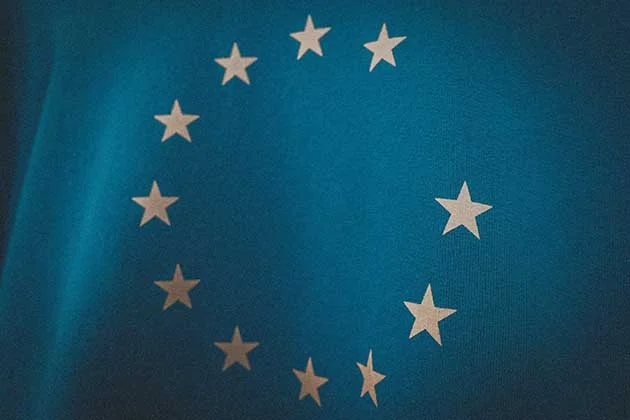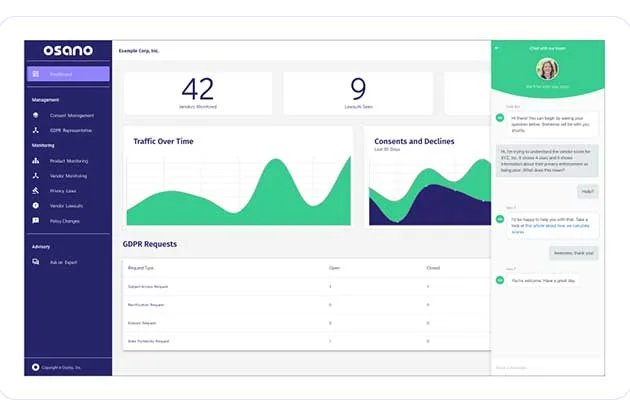As many facets of life have turned digital in the past years, including doing business, many novel issues have also arisen out of it. One such issue is personal data privacy protection. While transacting online, people usually think of the potential harms arising from sharing their private data online. In this article you will get to know about how GDPR had affected business.
Online data privacy has also become a buzz phrase these days as many people are shedding light on this topic. Listening to different subjective opinions, both negative and positive, developing paranoia of privacy breaches is also natural, and it is happening in actuality.
Giving a second thought to entering credit/debit card details at online marketplaces has become natural because one never knows the potential harms associated with it. In a nutshell, with the advent of the digital world, people have become data privacy conscious more than ever before.
However, whenever anything that directly impacts the citizens happens, we see visible hands—government’s intervention to regulate marketplaces—come into action, fortunately.
Analyzing the growing trends in technological advancements and digital adoption, governments are on the lookout for areas where the citizens’ rights are being compromised. Its evidence is the European Union’s General Data Protection Regulation (GDPR).
The GDPR is being adopted because it is seen as the only way to protect the citizens’ right to privacy while still allowing them to use the services that they want.
Since its inception, GDPR affected business in large quantity, especially the marketing department. The EU’s regulation, GDPR, not only affected business in the EU but also affects many of the businesses all around the world, thanks to globalization and the boom of ecommerce.
In this article, we will explain:
- What is GDPR?
- Why do businesses want data?
- GDPR’s impact on marketing
- GDPR’s impact on SMEs
- GDPR: an incentive or an obstacle?
Let’s start with the prologue to know how GDPR has affected business:
What is GDPR?

GDPR, a set of rules protecting the EU citizens’ right to data privacy, came into effect in mid-2018. All of the businesses that collect, store, and utilize data of EU citizens must abide by these rules; otherwise, they may face hefty fines of up to €20 million or 4% of the company’s annual turnover, whichever is greater, in case of non-compliance.
GDPR has specified the code of conduct for businesses that, intentionally or unintentionally, deal with the private data of EU citizens.
The humongous marketplaces such as Amazon and sourcing hubs such as Alibaba have made the business world closer by onboarding merchants and customers worldwide.
For instance, a company from India may have a customer from Europe on Amazon. Although it may add up to the sales and the increase in annual turnover eventually, it also makes the Indian firm obliged to comply with the GDPR’s rules. Hence, it is for this reason that GDPR has highly affected businesses all around the world.
The purpose of a business, however, is to make sales and profit. When businesses can accomplish this purpose with or without collecting customers’ data, why would any firm be non-compliant and pay these hefty GDPR penalties, right? No. The data is as crucial to a business as is profit.
Why do businesses want data?
If we trace back its history, we see the importance of data for businesses rising with the emergence of the marketing concept philosophy in the mid-1950s. This philosophy was a paradigm shift in the way marketing functioned. Prior to it, businesses often focused either on the selling efforts or their product and its production.
The marketing concept, on the other hand, focuses on the customers. The underlying mechanism of the marketing concept is the sense-and-respond framework. The businesses that have adopted the marketing concept sense the customers’ wants first, then respond with the product they desire.
To sense, however, businesses need data. They acquire this data either indirectly or directly from the customers through surveys, questionnaires, transactions, etc. Oftentimes, this data, which can be unique coming directly from the customers, functions as a competitive advantage for firms.
Businesses craft the desired products and services with the help of this data. Unilever, a leading FMCG manufacturer, is an example of the successful firms that have adopted the marketing concept and are leading their industry.
By imitating their business models, many firms have also been indulged in data acquisition extensively. They are indulged to the extent that they have objectified their customers as data-providing machines, which in turn may become their competitive advantage over rivals.
Simply put, businesses want data to innovate and craft a new solution that best serves their target market. Although the idea is customer-centered, the means used by many firms to execute it are ethically and now legally wrong.
GDPR’s impact on marketing
Before strong laws such as GDPR were in place, acquiring data wasn’t as challenging for the marketers as it is after. Also, because it was easier, marketers could save firms’ costs of marketing to much extent.
Since it was not costly to acquire data, marketers could acquire it in abundance, helping them sense the environment better. They would usually place a mandatory condition for customers of providing personal data before purchasing the firm’s goods or services.
On the contrary, GDPR has now turned the tables. It has restricted the firms from enjoying this benefit at the expense of customers’ mental peace associated with data privacy.
To follow the GDPR, businesses need to follow the law and give people the opportunity to give their consent to be contacted. The GDPR’s rule is that the business must ask for consent and also give people the opportunity to change their minds and withdraw their consent.
The marketers now cannot use customers as marketing subjects unless they have expressly and explicitly permitted them to process the data. For example, if the subjects have not explicitly opted to be on the marketing list, the marketer must not add them involuntarily.
You must have noticed consent checkboxes on every website that ask for permissions. These are also one of the GDPR’s rules to be followed by the firms.
Since the inception of GDPR affected business, things have changed. The firms now have to go the extra mile if they want to run the marketing practices at the same pace as before.
As a result, it has become more challenging for online businesses with websites and a presence on marketplaces such as Amazon to comply with all of these rules and regulations.
However, there are online tools that aid businesses comply with different countries’ laws and regulations. Osano, a compliance tool, is an example. Osano provides a turnkey solution for managing data privacy compliance. They provide a rapid turnaround, expertise in Europe’s GDPR, and a low cost.
Businesses will have the peace of mind of knowing that their website complies with the General Data Protection Regulation (GDPR) and has the added benefit of having Osano pay for any fines incurred.
GDPR’s impact on SMEs
The penalties imposed by GDPR for non-compliance are not as backbreaking for large-scale businesses or multinational conglomerates as for small and medium-sized enterprises. The penalty of €20 million may seem a colossal figure to SMEs, but it is just monthly turnover for many MNCs
Also, SMEs are the ones that have to indulge in extensive data collection in order to develop a product or service that can turn their fortune. The MNCs, on the other hand, are already established with a product/service that they can sell well without needing much of the marketing efforts.
GDPR: an incentive or an obstacle?
Compliance with GDPR can be costly, but the good news is that GDPR compliance can offer an excellent opportunity for a business, large or small. GDPR’s compliance is a big deal, but the benefits it offers are too.
As mentioned earlier, as the customers now have become privacy-conscious, GDPR compliance can be an opportunity for marketers who know how to work with customer pain points, like privacy.
By complying with GDPR, marketers can have their customers take a sigh of relief. They can position themselves as a firm that values their customers’ privacy. By doing this, they can attract more buyers and increase their company’s productivity.
Every business operating with the people of the EU has two options: either comply with the GDPR or have a hefty fine imposed. Since they’ll probably want to comply, it’s a good idea to use the GDPR as a selling point to attract new customers. Hence, they should perceive it as an incentive to attract new buyers.
Conclusion
The GDPR provides individuals in the EU with greater control over their personal data. With this regulation in place, companies must be transparent and clear to their customers about how they’re using their personal data.
The GDPR has affected businesses in many ways, as mentioned above. While some of them may seem obvious, there are also many subtle effects that may not be immediately apparent. However, it’s important to know that if your business is falling into any of the violations of the GDPR, you may be penalized heavily.
We hope you enjoyed our article on what the GDPR has meant for business and its impacts. This new law is important that we believe everyone should be aware of.












